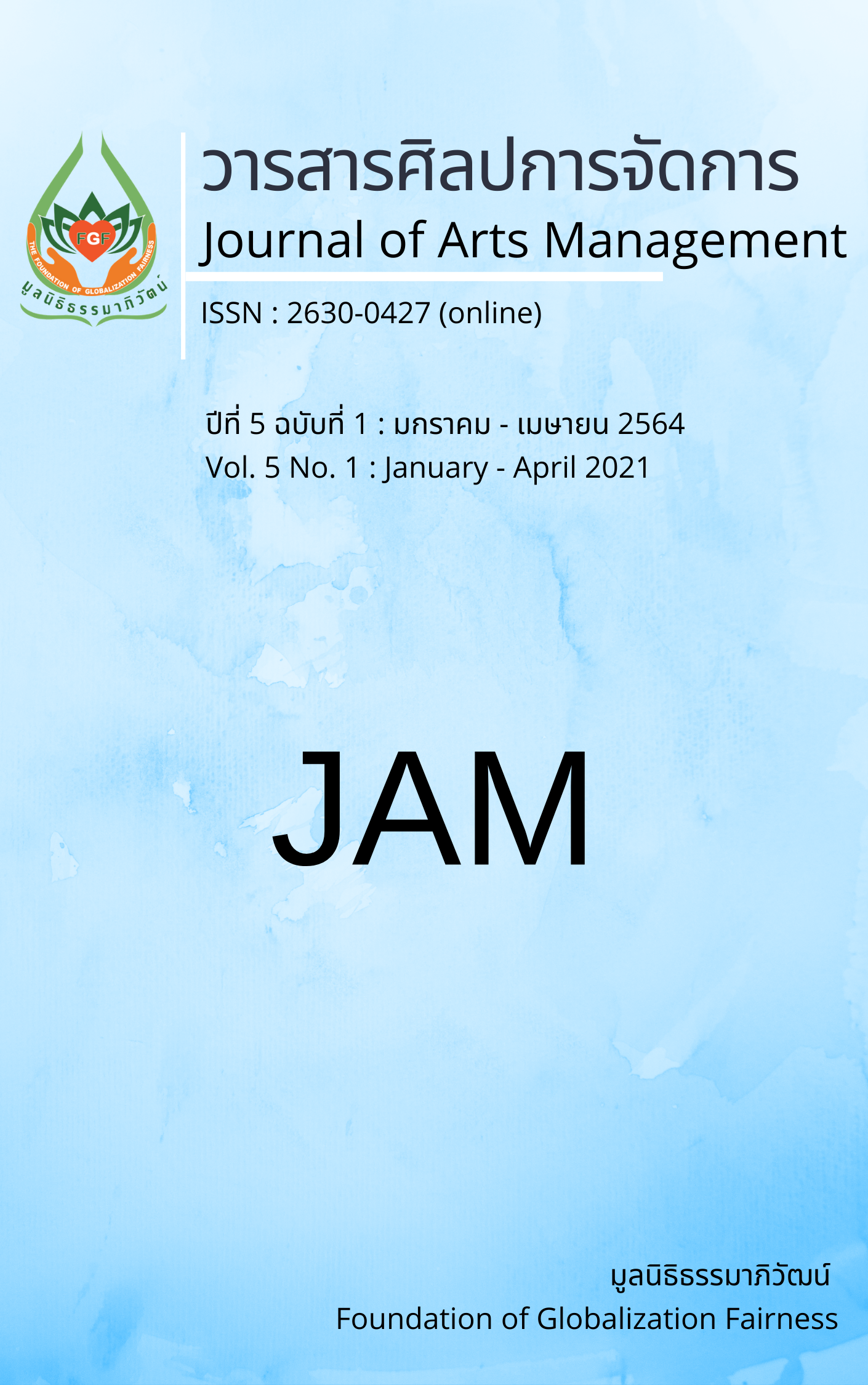The Opinions of those Involved in the Master Feature of The Faculty of Business Administration Bangkokthonburi University
Main Article Content
Abstract
The purposes of this research were 1) to study the opinions of employers and entrepreneurs on qualities the special characteristics on completing a master's degree in business administration at the Bangkokthonburi University; 2) to study the opinions of employers and entrepreneurs involved in the learning outcomes, according to the national qualifications framework for higher education; and 3) to bring comments, wants, and suggestions of employers and entrepreneurs on qualities the special characteristics on completing a master's degree in business administration at the Bangkokthonburi University to improve and develop curriculum the master of business administration faculty of business administration. The research was a quantitative design. The statistics used for data analysis were frequency, percentage, mean, and standard deviation.
The results of this research were as follows: 1) Overall opinions of employers and entrepreneurs on qualities the special characteristics on completing a master's degree when consider an overall aspect found high level, and consider each aspect ranked by mean see also leadership and responsibility in top rank; 2) Overall opinions of employers and entrepreneurs involved about learning outcomes, according to the standard framework was high level when consider each aspect they found that they were at the high level, ranked by mean see also interpersonal skills and responsibility in top rank; and 3) The Wants and suggestions of relevant persons towards the improvement of the master of business administration include updating the course content to be up to date. It meets the needs of the labor market and incorporates analysis along with the use of technology. Therefore, the curriculum should be developed for graduate students with an emphasis on the development and Promote skills training in line with leadership policies in the digital age. To keep pace with the changing of technology.
Article Details
Views and opinions appearing in articles in the Journal of Arts of Management It is the responsibility of the author of the article. and does not constitute the view and responsibility of the editorial team I agree that the article is copyright of the Arts and Management Journal.
References
กฤติยา ฐานุวรภัทร์. (2555). ศึกษาคุณลักษณะบัณฑิตที่พึงประสงค์สำหรับสถานประกอบการ กรณีศึกษาบัณฑิตสาขาวิชาภาษาอังกฤษเพื่อการสื่อสาร คณะสังคมศาสตร์และศิลปะศาสตร์ มหาวิทยาลัยนอร์ทเชียงใหม่. เชียงใหม่: มหาวิทยาลัยนอร์ทเชียงใหม่.
กัลย์ ปิ่นเกษร และ ประสพชัย พสุนนท์. (2558). ความสัมพันธ์ระหว่างภาวะผู้นำการเปลี่ยนแปลงกับการทำงานเป็นทีมของนักศึกษาระดับปริญญาโท คณะวิทยาการจัดการ มหาวิทยาลัยศิลปากร. วารสารธุรกิจปริทัศน์, 7(2), 27-39.
จตุพร อุ่นประเสริฐสุข. (2563). บุคลิกภาพ 5 มิติ และการจัดการความขัดแย้งของนักศึกษา: กรณีศึกษามหาวิทยาลัยราชภัฏสวนสุนันทา. วารสารวิจัยรำไพพรรณี, 14(2), 204-211.
ชนินาถ ทิพย์อักษร และคณะ. (2560). คุณลักษณะบัณฑิตที่พึงประสงค์ตามความต้องการของสถานประกอบการ. ทุนอุดหนุนการวิจัยจากสาขาวิชาการบริหารทรัพยากรมนุษย์. คณะวิทยาการจัดการ, มหาวิทยาลัยราชภัฏบุรีรัมย์.
ประคอง สุคนธจิตต์. (2561). ทรัพยากรมนุษย์ ยุค 4.0. NKRAFA Journal of Humanities and social Sciences, 7, 17-28.
วิบูลย์ จุง. (2556). ทฤษฎีลำดับขั้นความต้องการ (Maslow’s Hierarchical Theory of Motivation). สืบค้นจาก http://www.bloggang.com/mainblog.php?id=wbj&month=07-12-2007&group=29&gblAog=3
ศิณาภรณ์ หู้เต็ม. (2552). พฤติกรรมด้านคุณธรรม จริยธรรมของนักศึกษาในระดับปริญญาตรี วิทยาลัยราชพฤกษ์. ทุนอุดหนุนการวิจัยวิทยาลัยราชพฤกษ์. นนทบุรี: วิทยาลัยราชพฤกษ์.
ศิริรวี ราศรี. (2558). การใช้เทคโนโลยีสารสนเทศกับการบริหารจัดการทรัพยากรบุคคล กรณีศึกษา: องค์การสวนสัตว์ (การค้นคว้าอิสระรัฐศาสตร์มหาบัณฑิต สาขาวิชาการบริหารจัดการสาธารณะ). คณะรัฐศาสตร์, มหาวิทยาลัยธรรมศาสตร์.
สำนักงานคณะกรรมการอุดมศึกษา. (2552). กรอบมาตรฐานคุณวุฒิระดับอุดมศึกษาแห่งชาติ พ.ศ. 2552. กรุงเทพฯ: สำนักงานคณะกรรมการการอุดมศึกษา.
Achua, C. F., & Lussier, R. N. (2010). Effective leadership. (2nd ed). Ohio: Cengage Learning.
Dubrin, A. J. (2010). Principles of leadership. (6th ed). Ohio: South-western.
Krejcie, R.V. & Morgan, D.W. (1970). Determining Sample Size for Research Activities. Educational and Psychological Measurement, 30(3), 607-610.


